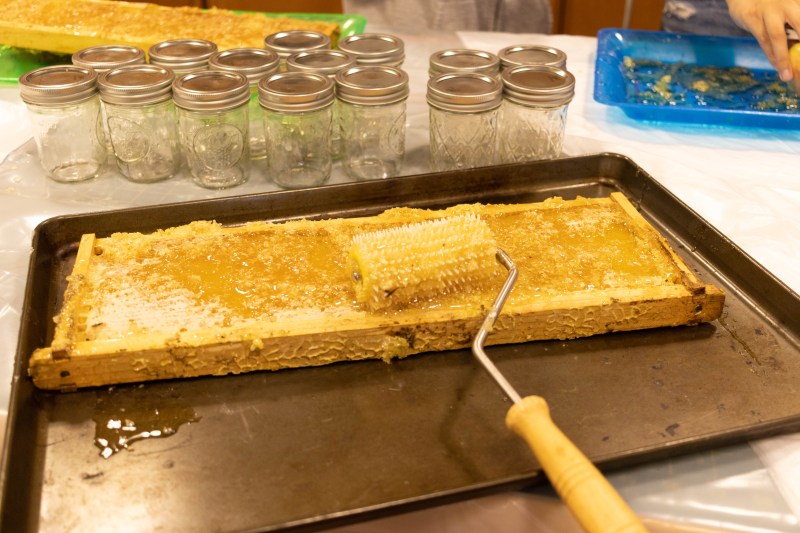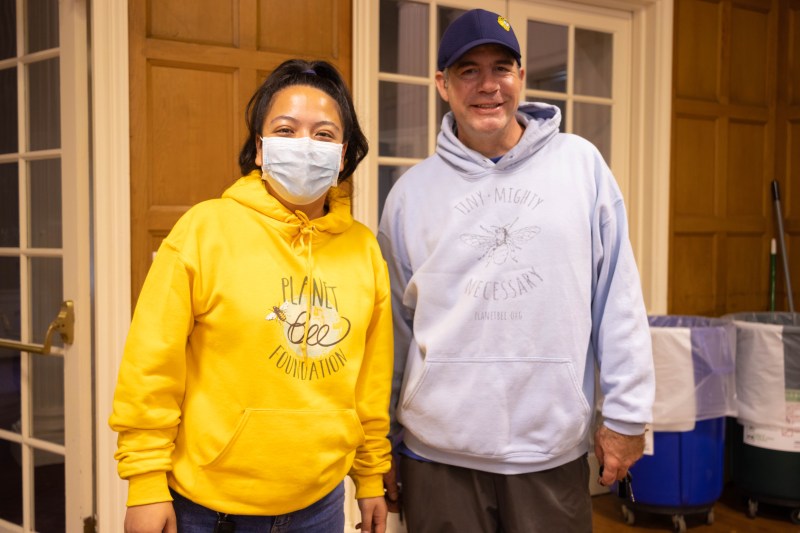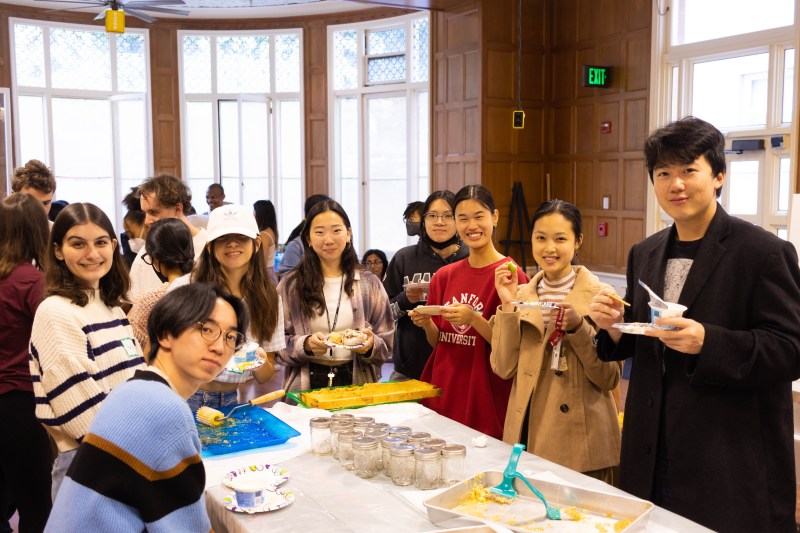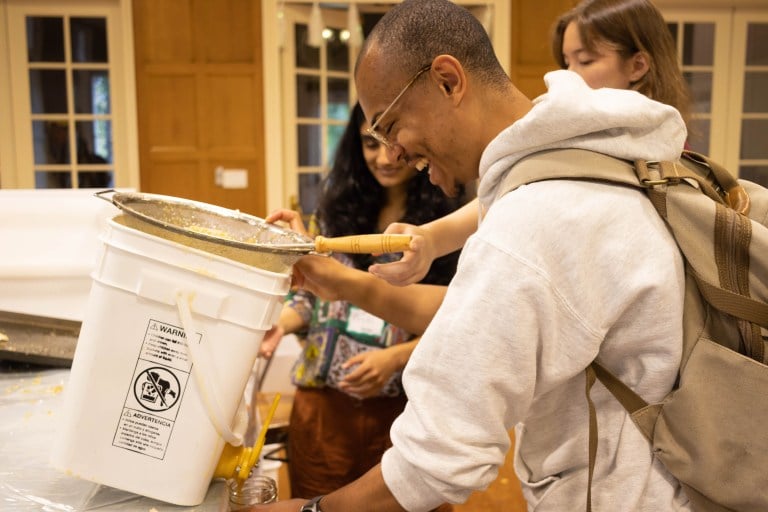Roble Hall brought a little sweetness to midterm season Saturday through its Honey Harvest collaboration with Planet Bee Foundation, a nonprofit based in San Francisco aiming to introduce bee conservation to STEM students in the Bay Area.
Honey Harvest invited Roble residents to participate in the creation of honey made by bees on campus, sample honey from across the country and world and take a complimentary jar of the sweet condiment home.

Roble residential fellow Becky Bull explained that the tradition of hosting Honey Harvest began prior to Covid and has continued annually after seeing the joy it brings students. “We were fortunate enough to have somebody tell us about [Planet Bee] and they’ve done it every year, they’re a great organization,” Bull said.
Planet Bee uses the event to attract student volunteers for future programming and direct students’ attention towards its ongoing Citizen Science project, which works with K-12 students to build nests for native bee populations and understand the science of pollination.
Program director and entomologist Jason Graham explained how the program can connect to bee conservation, specifically on the Stanford campus. Although the Stanford land, along with the broader United States, was host to a diverse range of bees in the 17th century, campus is currently home to only one European species, Apis mellifera. Ongoing conservation efforts are now directed towards rehabilitating native populations to coexist with their European compatriots.
“We’re starting a citizen science project to try to understand more about the bees that are native here before honey bees arrived,” Graham said.

Students who attended the event were also introduced to another of the foundation’s programs, which aims to educate local K-12 students about the importance of bees. “That’s one of our missions, to get students excited about STEM fields, and honeybees are kind of a perfect lean into that,” said Graham.

Many Roble students indeed leaned in, attracted by the promise of free honey and samples as well as the opportunity to learn about bee culture and honey production.
One such resident was Jadon Geathers ’24. “Bees are actually fascinating. I learned that there are so many different types of honey, and I would’ve assumed that basically everything tastes the same, but that’s very far from true,” Geathers said after the event.
Roble resident Suleman Qamar ’23 echoed Geathers, adding that his favorite part of the event was trying a variety of types of honey. “They all taste very different, and I wouldn’t have expected that, and trying to quantify, you know, what does this taste like, which one do I like most,” he said.
Another attendee, Karen Tseng, who is a student at Berkeley, said, “It made me really appreciate all the effort and the labor that goes into making anything that we consume.”
“I think oftentimes, we’re so disconnected from where anything that we have comes from so it was just really interesting to actually be part of it,” she added.
The event attempted to engage students in the efforts being made to conserve populations and support honey bees on campus. “A good thing to do is plant native wildflowers because that’s their source of food, and also to observe them and get over the fear [of bees]… They’re actually really helping to provide food for us through pollination,” Graham said.
Stanford students may also be familiar with the honey made by the bees on campus. “They have the hives on campus [from which] they use honey in the dining halls, so you may have already had it without even realizing it,” Graham said.
